How to Know When You Need to Visit a Dentist?

Signs That Indicate Dental Visit
Knowing when to visit the dentist is crucial for maintaining good oral health. Several signs can indicate a need for professional dental care.

Pain or Swelling in the Mouth
Experiencing pain or swelling in the mouth, face, or neck can signal various dental issues. Prompt attention from a dentist is necessary to identify the underlying problem and prevent further complications (Mouth Healthy).
SymptomPossible IssuePain in the mouthCavities, infectionsSwelling in the faceAbscesses, gum diseasePain in the neckTooth or gum infection
Bleeding or Swollen Gums
Swollen gums that bleed during brushing or flossing are signs of periodontal disease. Individuals with a family history of gum issues should schedule appointments preemptively, as early intervention can prevent serious health complications.
SymptomPossible CauseBleeding gumsGum disease, vitamin deficienciesSwollen gumsInfection, inflammation
Presence of Dental Work
People with existing dental work, such as fillings, crowns, implants, or dentures, require regular dental visits. Routine checkups ensure that the dental work remains functional and well-maintained.
Dental WorkRecommended Checkup FrequencyFillingsAnnuallyCrownsEvery 6-12 monthsDenturesEvery 6-12 monthsImplantsEvery 6-12 months
Medical Conditions Influence
Certain medical conditions like diabetes, cardiovascular disease, or ongoing medical treatments can impact oral health. Consulting a dentist is crucial for these individuals to maintain both dental and overall health.
ConditionDental ConsiderationsDiabetesIncreased risk of infectionsCardiovascular diseaseHigher risk of gum diseaseEating disordersTooth erosion and decay
Importance of Regular Checkups
Regular dental checkups are essential even in the absence of noticeable symptoms. These visits allow dentists to prevent potential issues and address any existing problems before they escalate.
FrequencyRecommended forEvery 6 monthsMost individualsEvery 3-4 monthsHigh-risk patients
By being mindful of these signs, individuals can understand how to know when you need to visit a dentist? and maintain optimal oral health. Regular visits to a dental professional are key components of effective dental care.
Dental Issues and Health
Preventive Dental Checkups
Preventive dental checkups are essential for maintaining optimal oral hygiene and overall health. These visits include comprehensive assessments of oral health, allowing professionals to identify early signs of dental concerns such as cavities, gum disease, or oral cancer. Regular checkups help ensure cleanings can remove plaque and tartar buildup, significantly reducing the risk of decay and gum issues.
Frequency of CheckupsRecommended ActionEvery 6 monthsComplete dental examination, cleaning, and preventive careAnnuallyComprehensive evaluation of oral health status
Benefits for Children
Children should visit the dentist at least once every six months to help avoid cavities and establish good oral hygiene habits early on. Regular dental visits ensure timely monitoring of emerging teeth and allow dental professionals to provide preventive care, such as sealants and fluoride treatments that protect against decay.
Age GroupRecommended Visits0-5 yearsEvery 6 months6-12 yearsEvery 6 months12+ yearsAt least every 6 months
Benefits for Adults
For adults, regular dental checkups help in early detection and treatment of potential dental problems before they lead to more serious issues. Individuals committed to good oral hygiene practices often encounter fewer dental issues, resulting in fewer visits to the dentist compared to those who neglect their oral care (WebMD).
Adult CareRecommended ActionRegular CheckupsEvery 6 monthsMonitoring ChangesImmediate appointment for any new symptoms or discomfort
Influence of Lifestyle Habits
Lifestyle choices greatly influence oral health. Poor dietary habits, including high sugar consumption, can lead to cavities and gum disease. Smoking and excessive alcohol consumption can also negatively impact oral health, making regular checkups even more critical. Maintaining good oral hygiene and regular interactions with a dentist can help mitigate these risks.
Role of Oral Hygiene
Dedication to oral hygiene plays a significant role in overall dental health. Individuals who diligently follow oral care routines typically experience better outcomes and reduced need for frequent dental visits. Essential practices include regular brushing, flossing, and the use of mouthwash to keep the mouth free of harmful bacteria.
Oral Care RoutineRecommendationsBrushingTwice daily with fluoride toothpasteFlossingOnce dailyMouthwashDaily for added protection
Systemic Health Connections
Poor oral health can lead to numerous systemic health issues. Conditions such as diabetes, cardiovascular disease, and certain cancers have links to oral health, with symptoms of these health problems often first detected in the mouth (AAOSH). Thus, regular dental visits are crucial not only for oral health but also for maintaining overall health.
Monitoring oral health closely allows for early intervention, preventing untreated oral conditions from becoming painful and more challenging to manage.
Urgent Dental Care Signs
Recognizing signs that may indicate the need for immediate dental care is crucial for maintaining oral health. Below are several key indicators that one should not ignore.
Dental Pain Post-Procedure
Experiencing pain following a dental procedure is not uncommon, but it becomes a concern if the pain is severe or persists beyond a few days. This could indicate complications such as infection or an incorrect procedure. Monitoring post-procedure discomfort is vital.
Tooth Infections or Cavities
Sharp or throbbing dental pain can signal a tooth infection or cavity. If left untreated, these issues may require more invasive treatments such as a root canal or extraction (Salt Run Dental).
Type of PainPotential CauseRecommended ActionSharp PainCavityVisit a dentist immediatelyConstant Throbbing PainInfectionUrgent dental care neededPain with DiscolorationInjury or DecayImmediate evaluation required
Frequent Tooth Sensitivity
Regular sensitivity, particularly if it worsens or is accompanied by pain, can indicate various dental issues, including cavities or exposed roots. It is essential to consult a dentist if this symptom occurs frequently.
Pain While Biting
Pain experienced while biting down may suggest issues such as cavities, cracked teeth, or gum disease. This symptom requires a trip to the dentist to assess the underlying cause. If the pain is sharp and severe, it is classified as an urgent concern.
Temporomandibular Joint Dysfunction
Pain in the back of the mouth with associated discomfort may result from temporomandibular joint (TMJ) dysfunction. Symptoms can include compromised jaw movement, swelling, and risk of dental damage. Seeking immediate attention from a dentist is advisable if these symptoms are present.
Understanding these urgent signs can help individuals make informed decisions about their dental health. For more insights on when to see a dentist, visit our article on signs you should see a dentist immediately.
Types of Tooth Pain
Understanding the various types of tooth pain can help individuals determine when it is necessary to visit a dentist. Each type of pain may indicate different underlying issues that require attention.
Sharp Biting Pain
Sharp pain when biting down often signals an exposed inner layer of the tooth. This could be due to a crack, cavity, or an infection around the roots. Immediate treatment is essential to address these issues and prevent further damage (Lancaster Family Smiles).
Pain TypeDescriptionAction RequiredSharp Biting PainPain when biting down; often indicates a crack, cavity, or infectionVisit a dentist promptly
Constant Throbbing Pain
A severe, constant, and throbbing toothache typically points to a serious dental infection. If left untreated, this pain can cause permanent damage and affect overall health. Immediate dental attention is crucial.
Pain TypeDescriptionAction RequiredConstant Throbbing PainSevere, persistent pain; often a sign of infectionSeek immediate dental care
Tooth Sensitivity Duration
Tooth sensitivity that lasts longer than 30 seconds may indicate a dental abscess or other serious issues. If sensitivity persists, urgent treatment is required to prevent loss of the tooth (Lancaster Family Smiles).
Pain TypeDescriptionAction RequiredTooth SensitivitySensitive for over 30 seconds; might indicate an abscessImmediate dental evaluation
Pain with Tooth Discoloration
When a painful tooth appears darker than the rest, it may indicate an injury. This condition necessitates quick treatment to prevent worsening of the issue (Lancaster Family Smiles).
Pain TypeDescriptionAction RequiredPain with DiscolorationDarkened tooth accompanied by pain; could indicate injuryPrompt dental visit
Long-Lasting Toothache
A toothache that lasts more than a day and is severe enough to interrupt daily life or wake an individual up at night should prompt immediate contact with an emergency dentist. This is often a sign of a significant dental issue.
Pain TypeDescriptionAction RequiredLong-Lasting ToothachePain lasting more than a day disrupting daily lifeContact emergency dentist immediately
Each type of tooth pain requires appropriate action to ensure dental health. Recognizing these symptoms can aid individuals in understanding how to know when you need to visit a dentist?.
Practices for Preventative Dentistry
Preventative dentistry is vital for maintaining oral health and minimizing the need for emergency dental visits. By adopting a few key practices, individuals can ensure their teeth and gums remain healthy.
Importance of Sugar Reduction
Limiting sugar intake is essential for oral health. Sugary foods and drinks can lead to cavities, making it important to monitor consumption. The World Health Organization recommends keeping sugar intake to less than 10% of total calorie consumption. Dental specialists suggest reducing it further to 5% to significantly lower the chances of dental issues (Northridge Advanced Dentistry).
Sugar Intake RecommendationPercentage of CaloriesWHO Suggested Limit<10%Dental Specialists Suggested Limit<5%
Proper Toothbrush Use
Using an appropriate toothbrush and technique is crucial for dental health. Brushing too aggressively or using hard bristles can damage gums and tooth enamel, leading to sensitivity and erosion. Dental professionals advise using a soft-bristled toothbrush and replacing it every three months.
Toothbrush TypeRecommendationBristle HardnessSoftReplacement FrequencyEvery 3 months
Essential of Fluoride
Fluoride plays a significant role in preventing cavities. It is commonly found in toothpaste and mouthwashes. Evidence indicates that even with good oral hygiene, lack of fluoride can lead to tooth decay.
Benefits of Flossing
Daily flossing is a key part of dental care. It helps remove food particles and plaque from places that a toothbrush cannot reach. Dental professionals recommend using either waxed or unwaxed nylon floss to effectively clean between teeth (Northridge Advanced Dentistry).
Floss TypeRecommendationTypeWaxed or Unwaxed Nylon
Role of Dental Cleanings
Regular dental check-ups and professional cleanings are fundamental for maintaining oral health. Visiting the dentist at least twice a year allows for early diagnosis of potential issues, preventing the development of more severe problems in the future. For more information on why regular visits are essential, check why you should see a dentist regularly?.
Dental Visit FrequencyRecommendationCheck-ups and CleaningsAt least twice a year
Oral Hygiene and Checkups
Maintaining good oral hygiene and scheduling regular dental checkups are essential for overall dental health. This section highlights the key practices that contribute to healthy teeth and gums.
Importance of Regular Brushing
Brushing teeth effectively is vital for removing plaque and food debris. Using circular and gentle motions helps eliminate buildup, preventing tartar formation, which is a primary cause of cavities and periodontal diseases like gingivitis. Regular brushing is crucial for keeping teeth clean and preventing dental issues.
Correct Brushing Techniques
The American Dental Association (ADA) recommends brushing twice a day for at least two minutes each time. Proper technique includes using a soft-bristled toothbrush and ensuring to reach all surfaces of the teeth. Neglecting nighttime brushing can increase the risk of cavities and decay.
Brushing FrequencyRecommended DurationTwice Daily2 Minutes
Tongue Brushing Necessity
Brushing the tongue is an important aspect of overall oral hygiene. The tongue can harbor food debris and bacteria, leading to bad breath and oral health issues. It is recommended to lightly brush the tongue each time teeth are brushed for optimal cleanliness.
Daily Flossing Benefits
Flossing daily is essential to remove plaque and bacteria from places that toothbrushes cannot reach, such as between teeth. By eliminating food particles trapped between teeth, daily flossing also helps prevent bad breath. Incorporating this practice into a daily routine is crucial for maintaining oral health (Whittier Dental Services).
Essential of Regular Dental Visits
Regular dental check-ups, typically recommended twice a year, play a key role in maintaining oral hygiene. These visits allow for early detection of any dental issues, enabling prompt treatment before they escalate into more serious problems. Regular consultations not only promote better oral health but also enhance the overall management of dental care and hygiene. For more detailed insights on the importance of visiting the dentist, check out our article on why you should see a dentist regularly?.
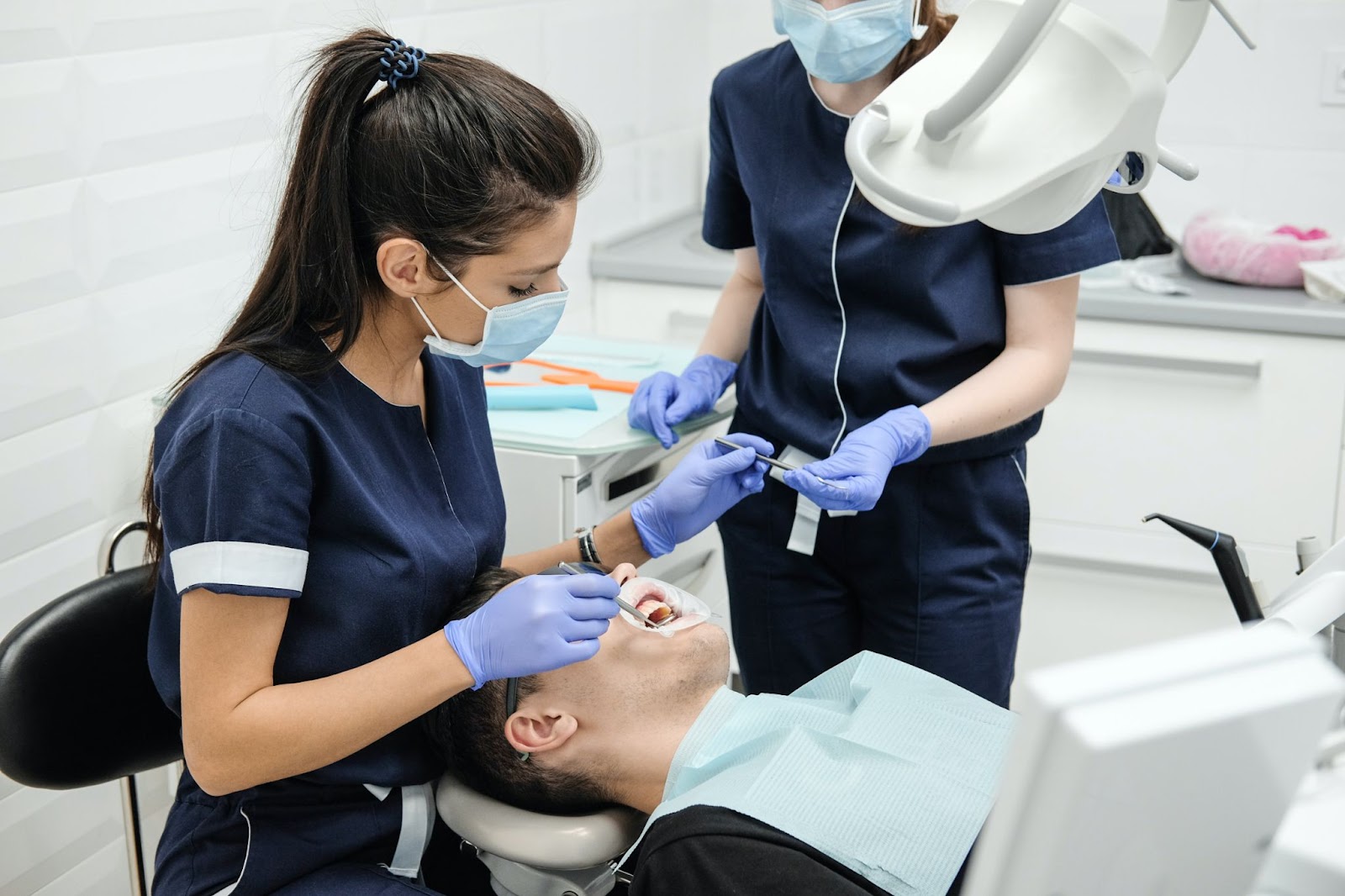




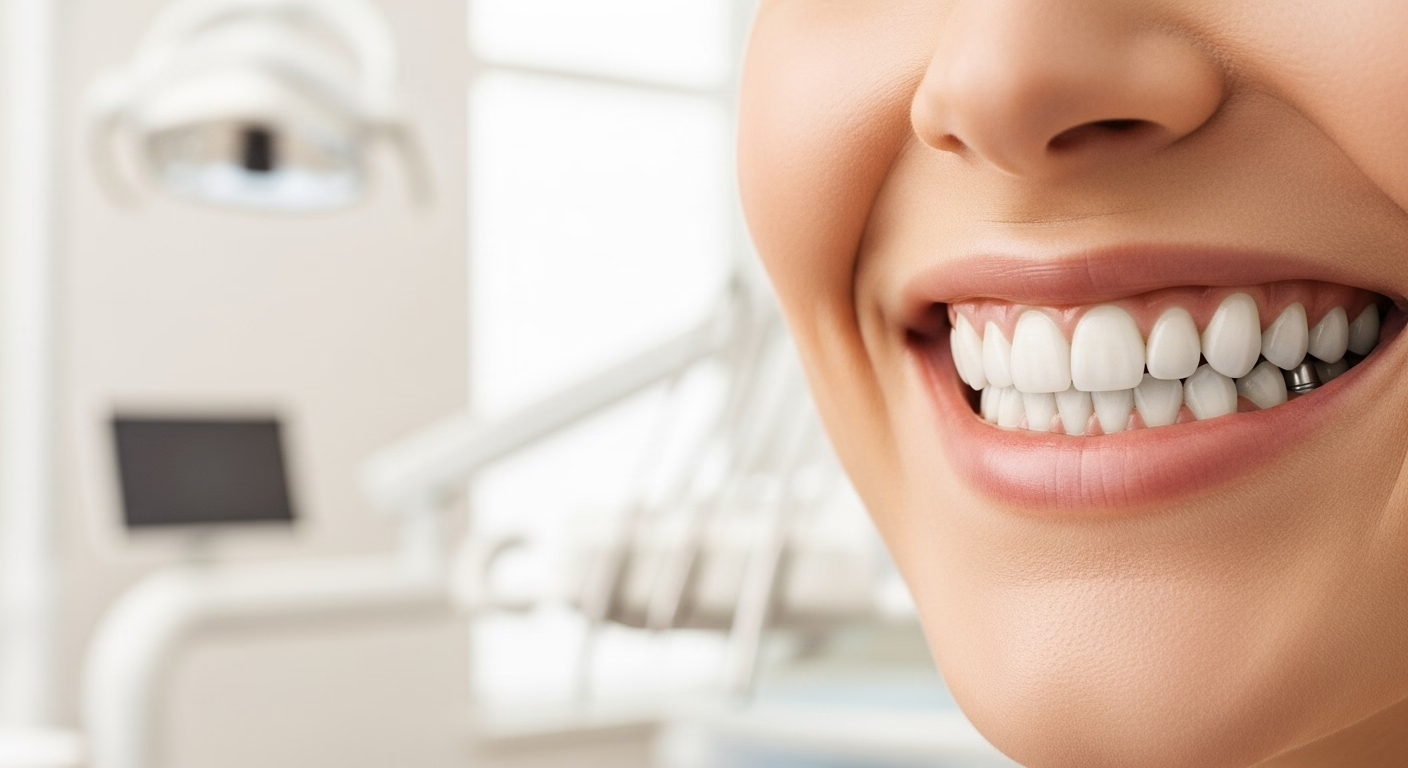
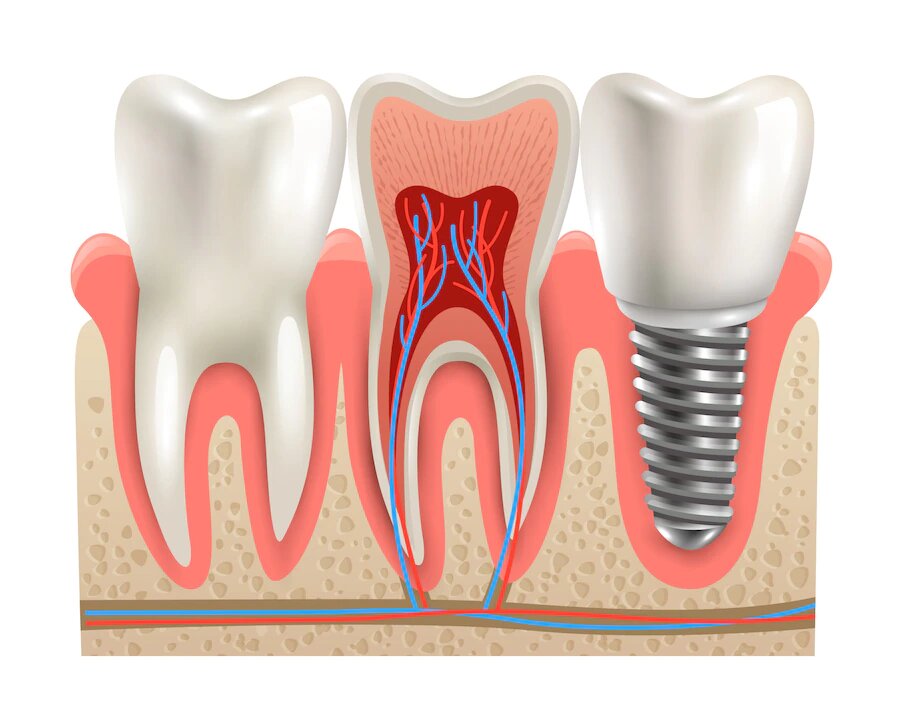
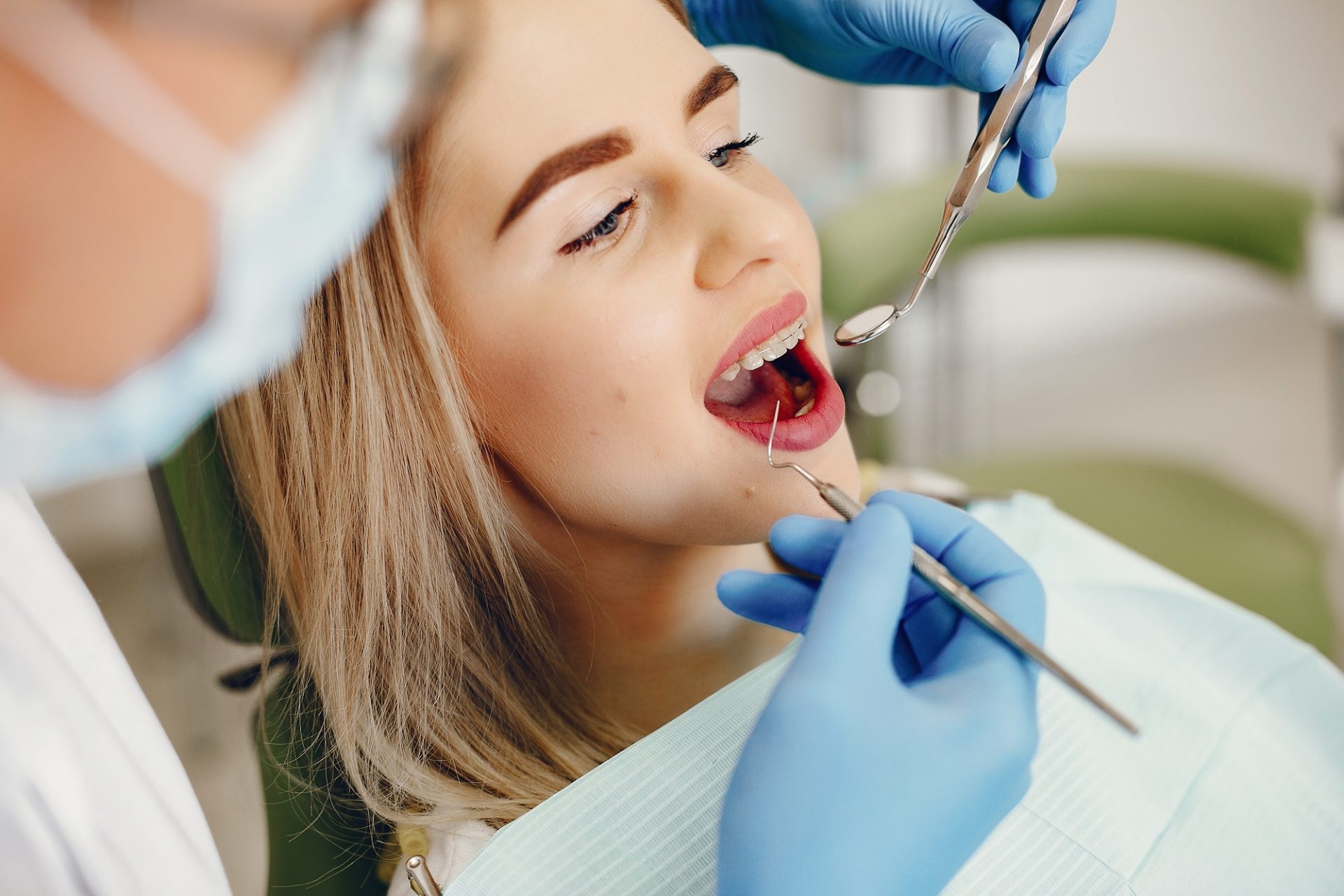









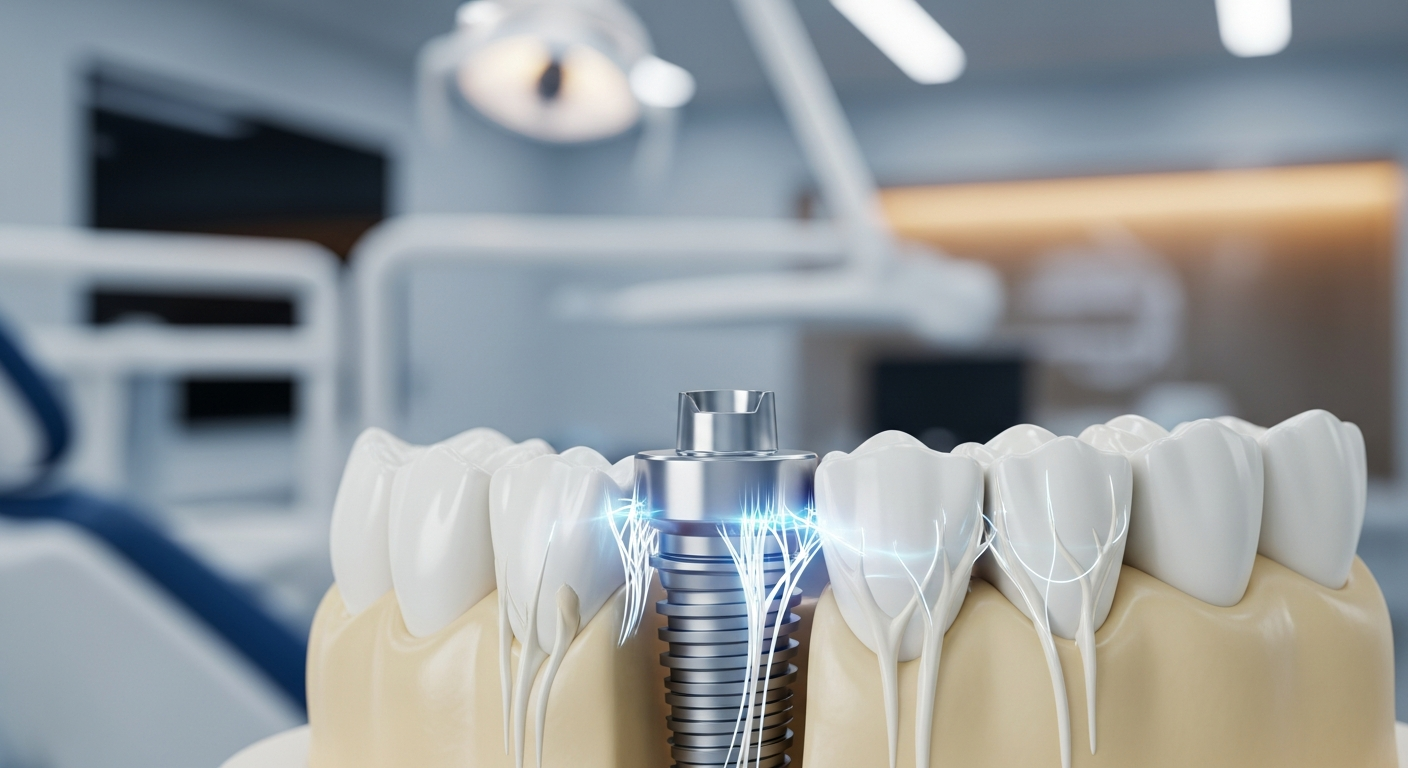
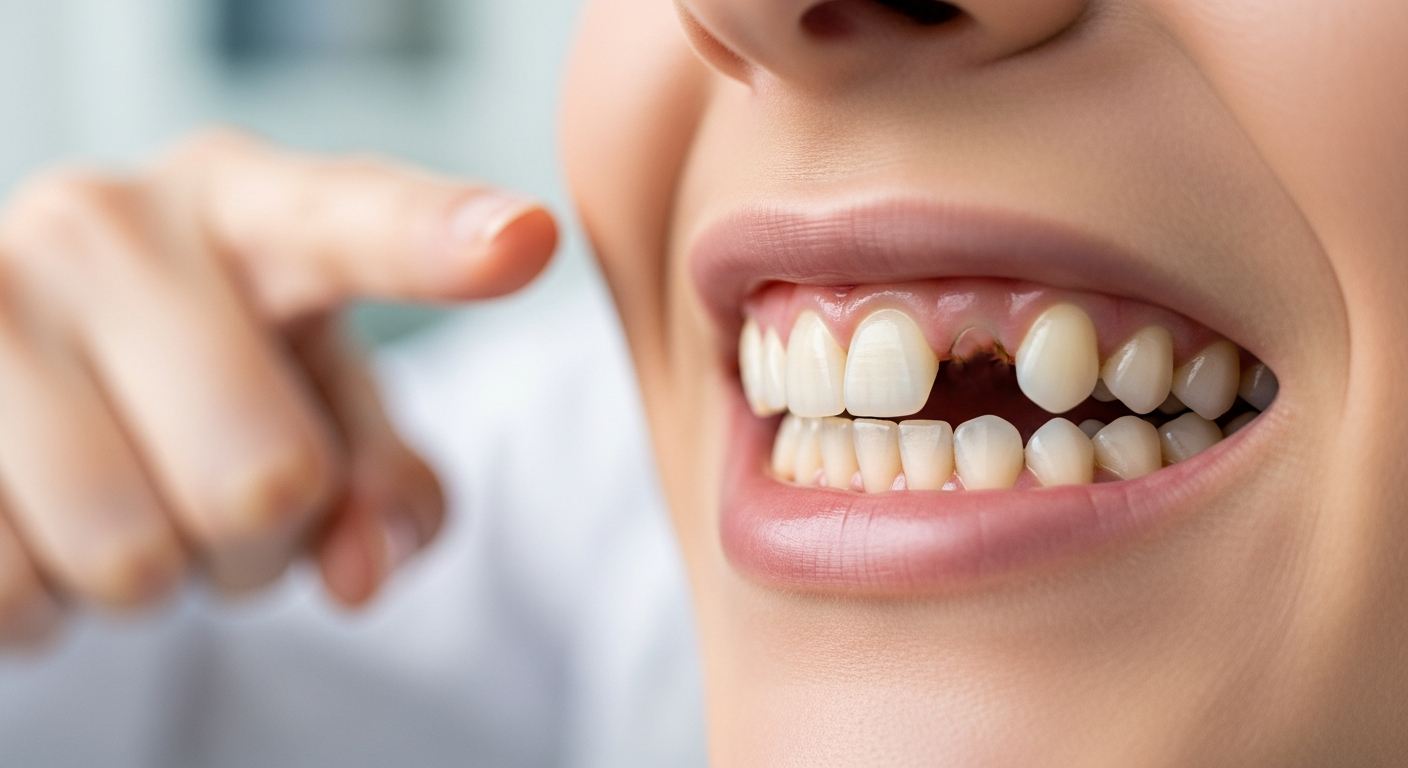





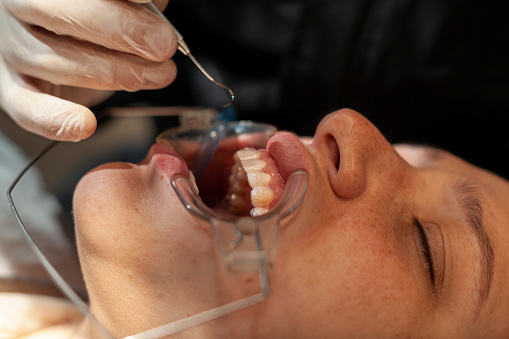

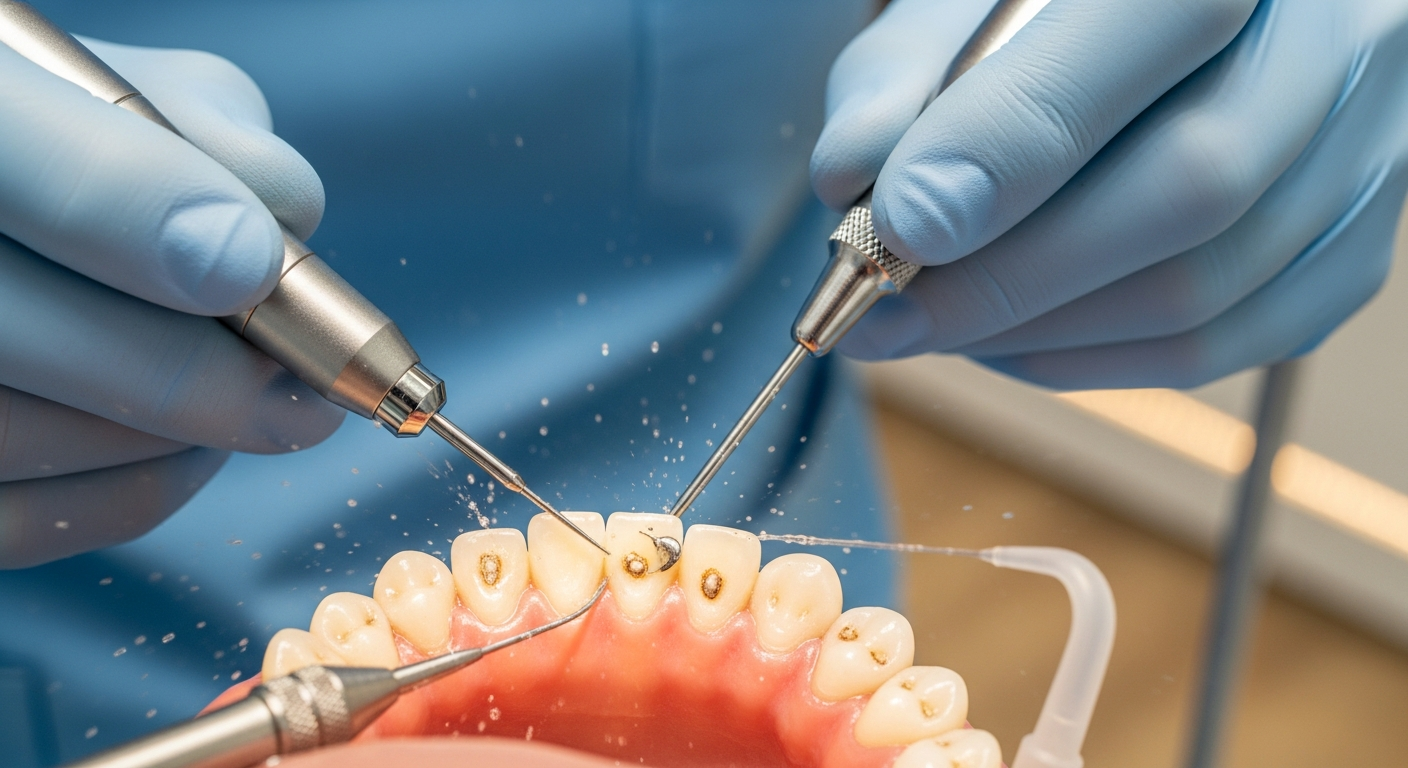


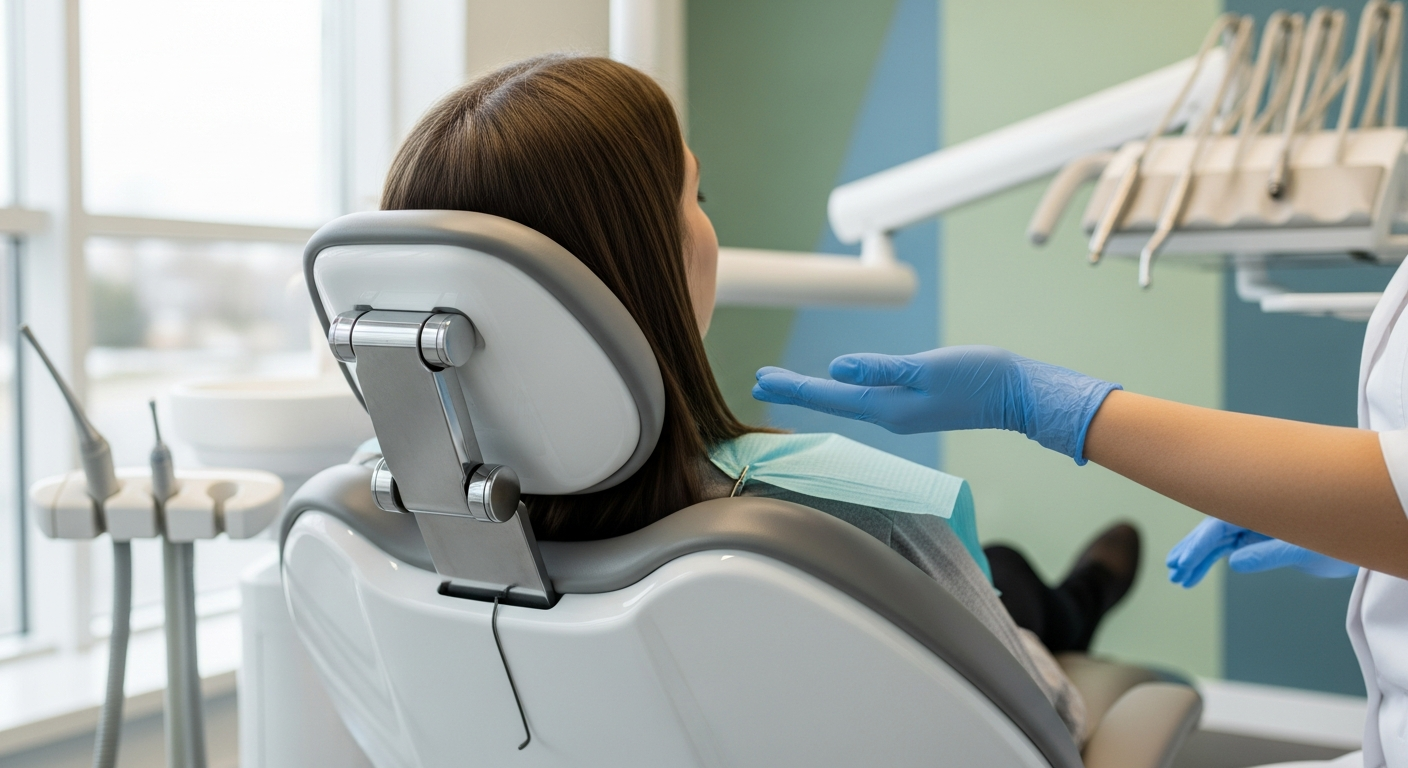

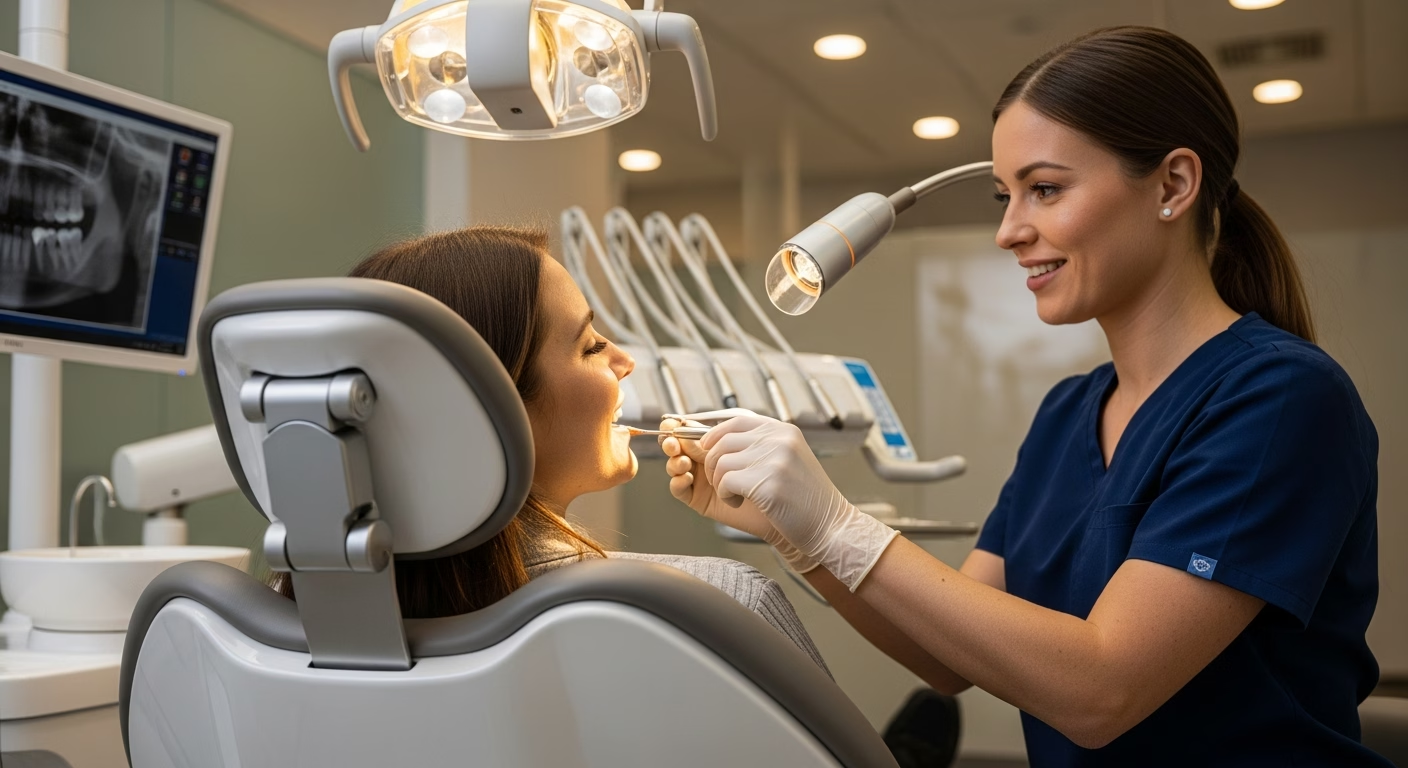
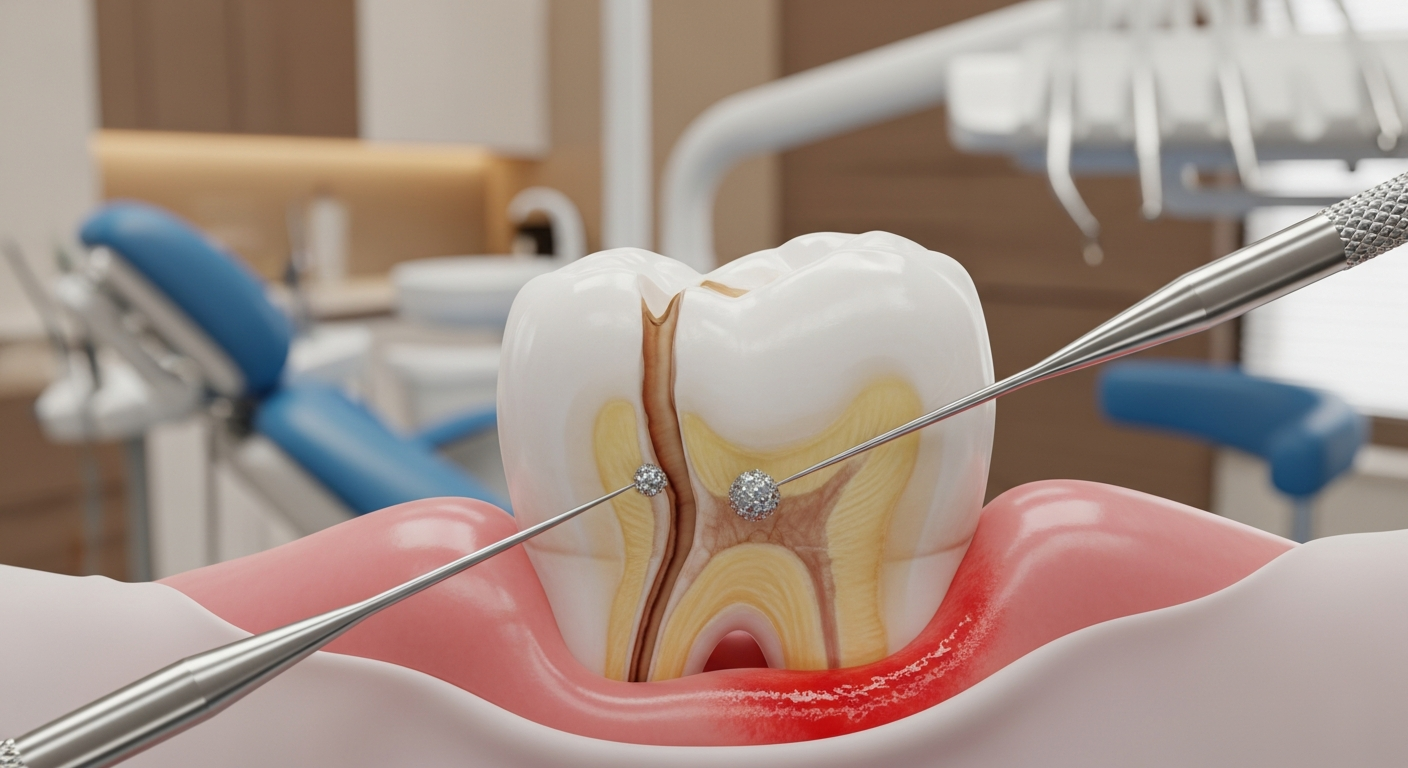




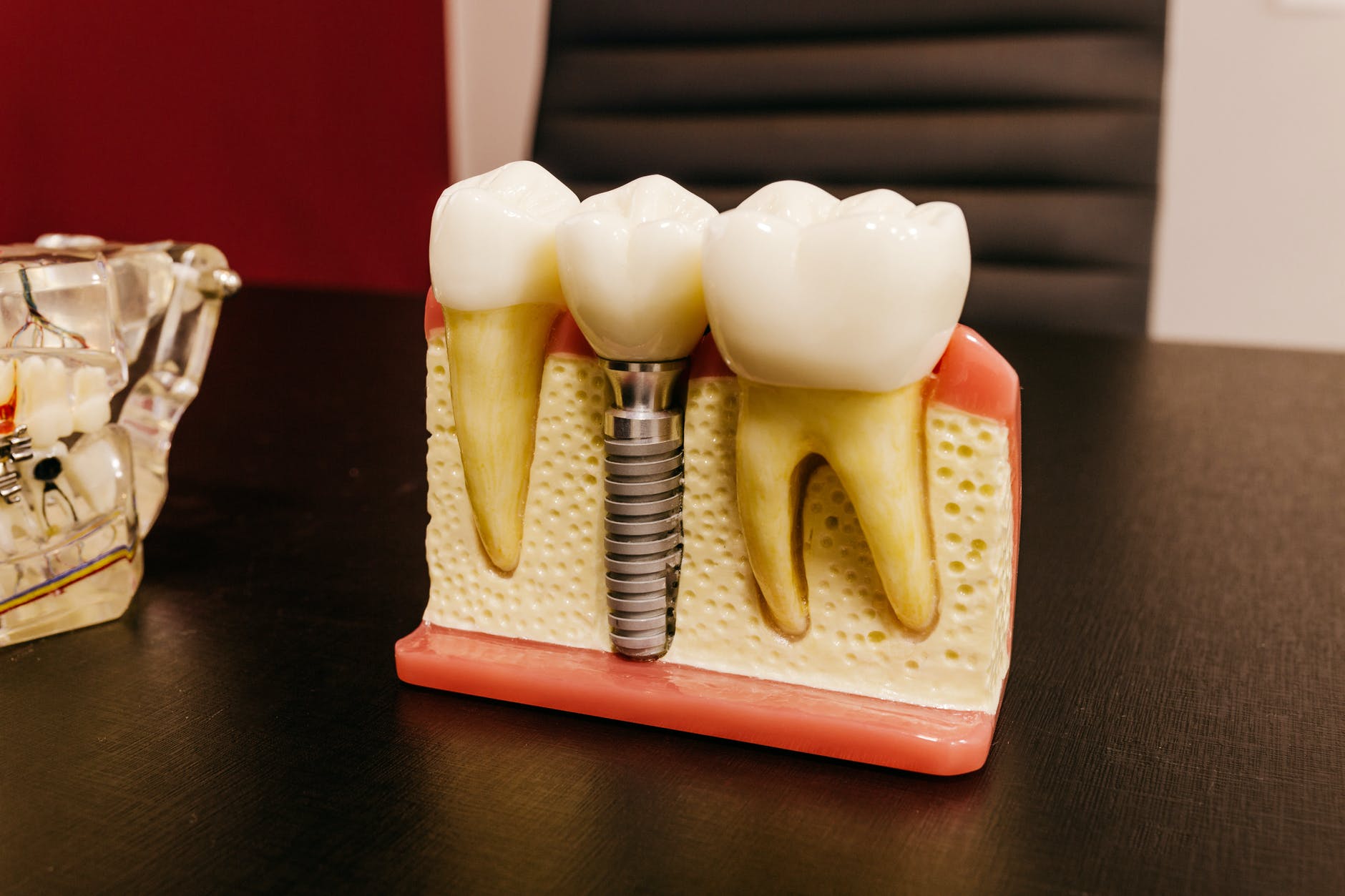


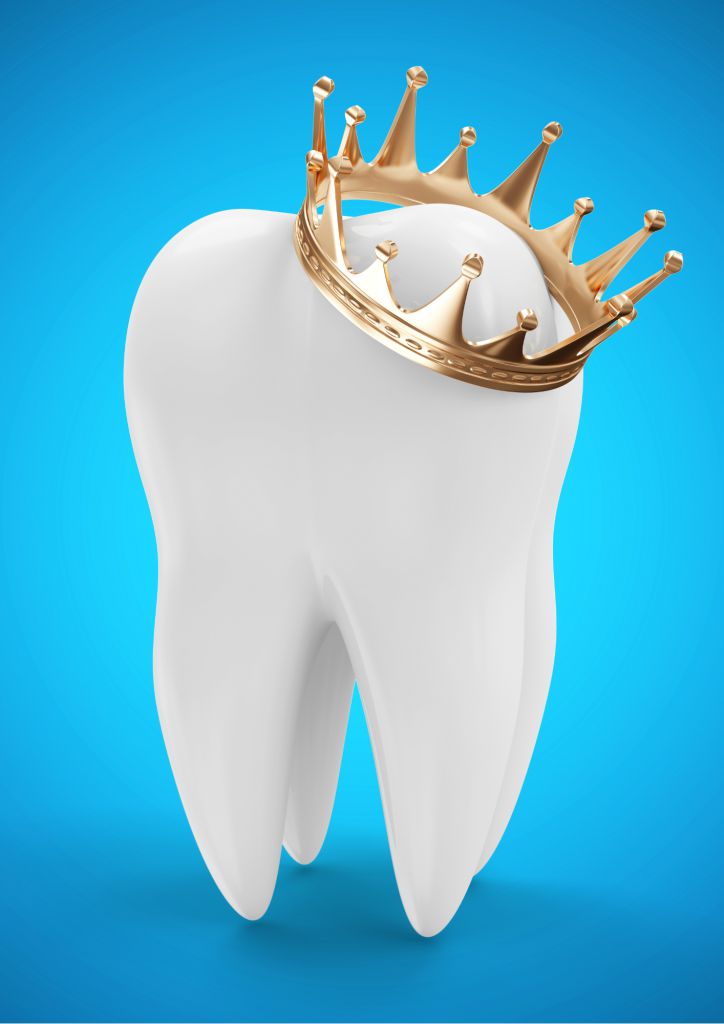



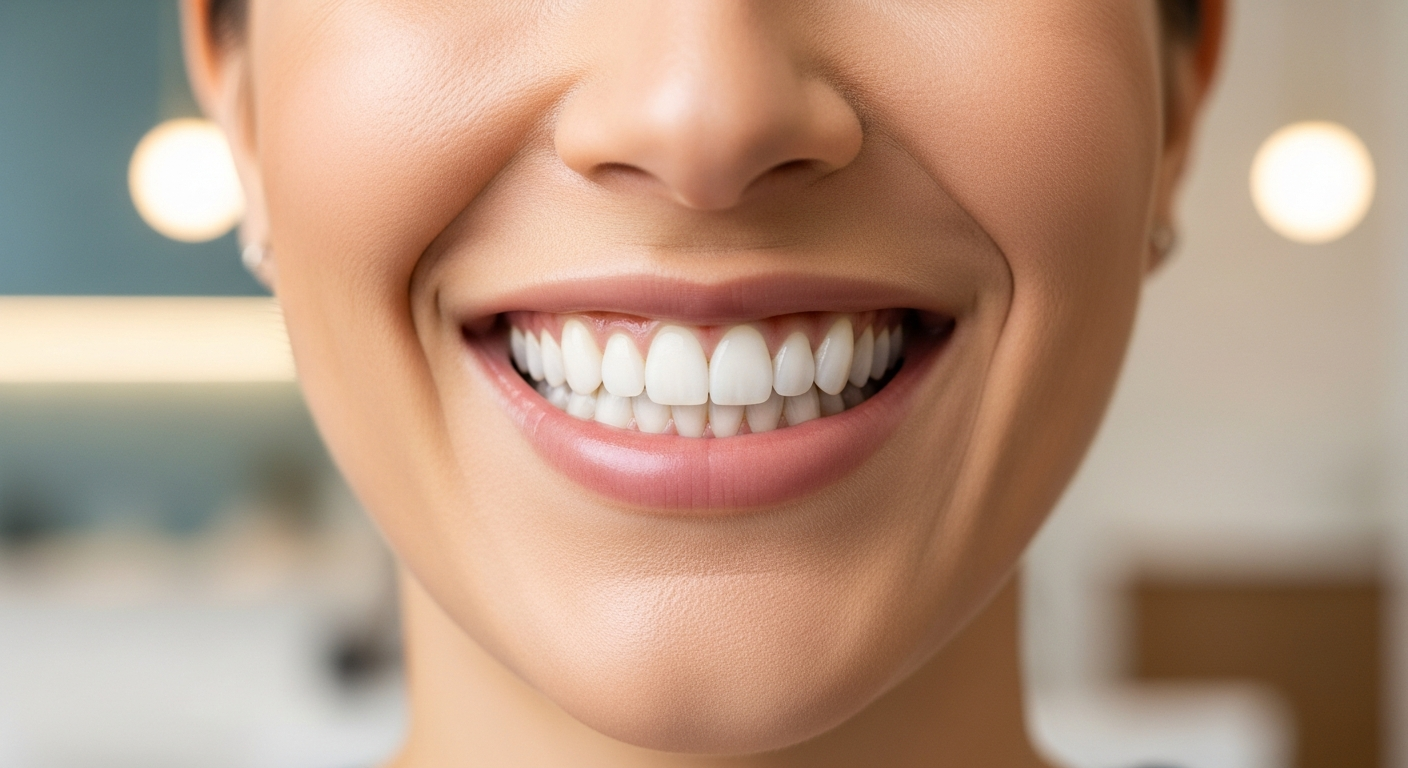



.avif)


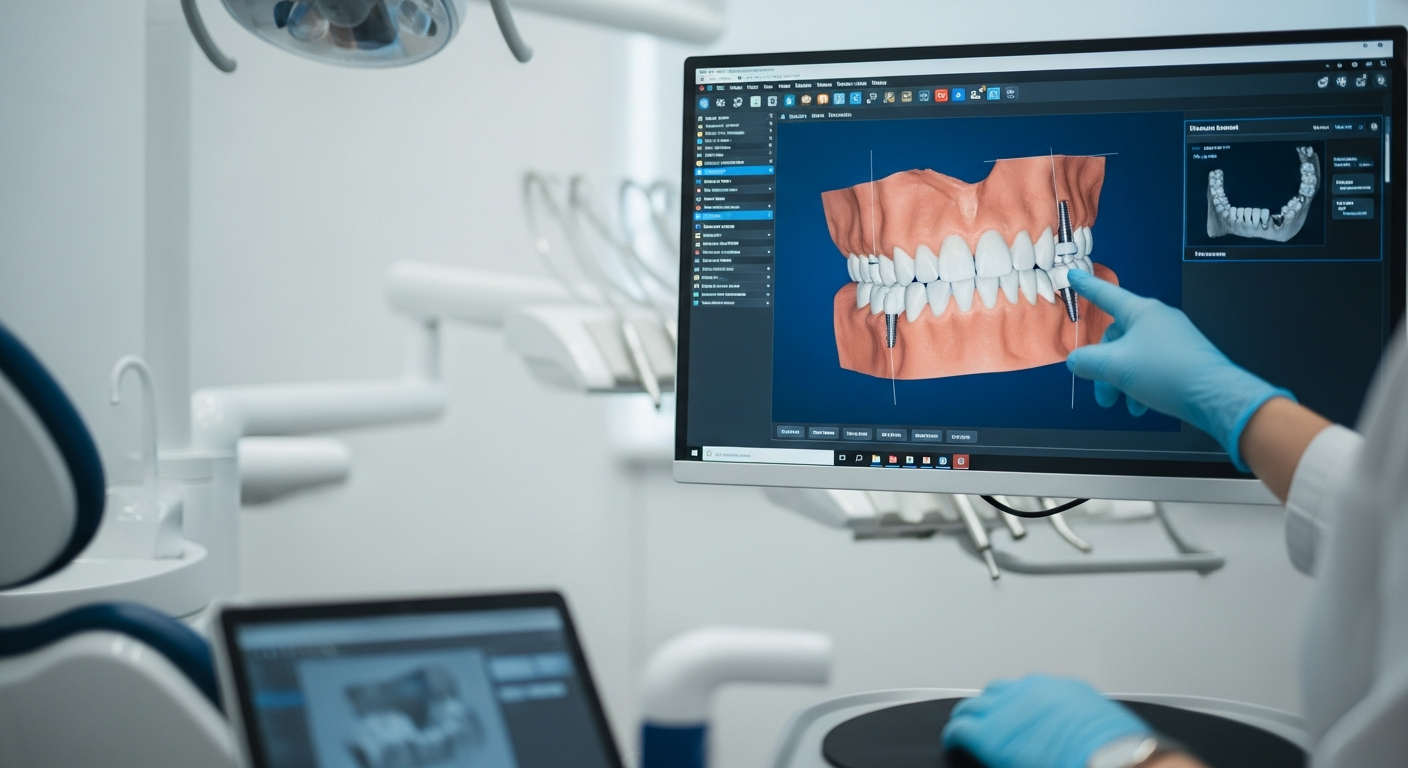



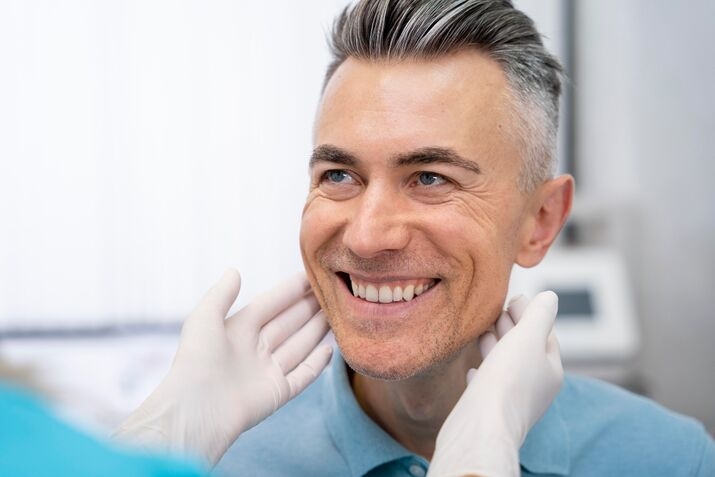
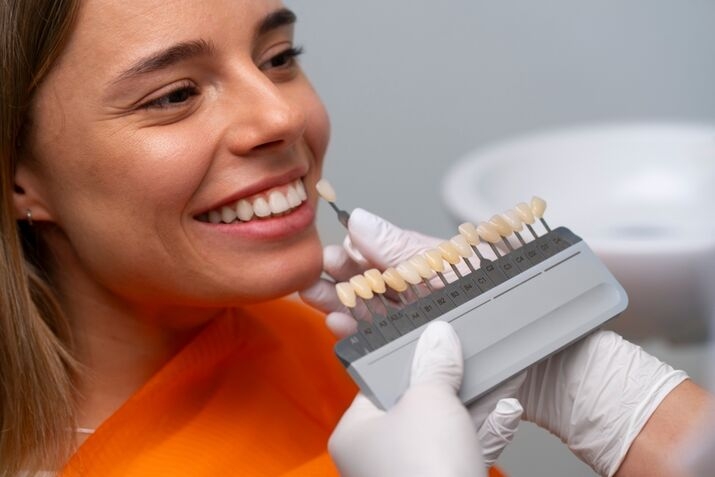
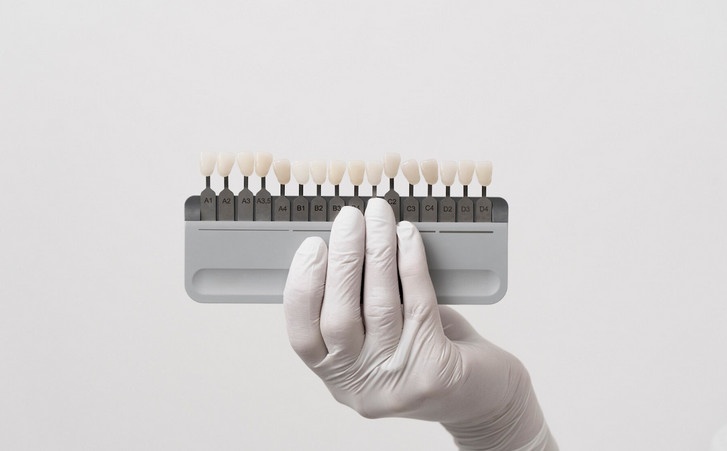

.jpg)


















.avif)


















.jpg)



